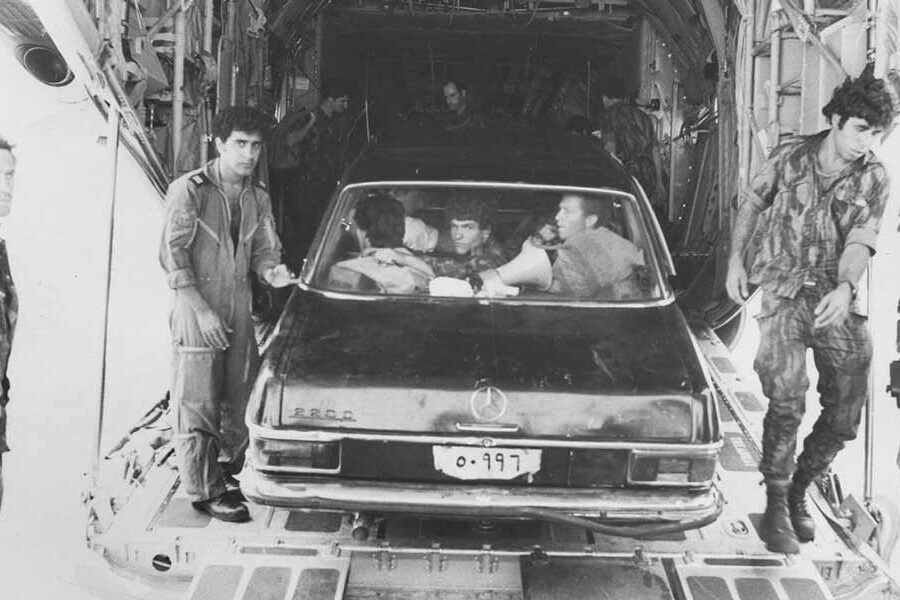The archaeology of Israel is the study of the archaeology of the present-day Israel, stretching from prehistory through three millennia of documented…
#93 Israel is a country that can pull off an Operation Entebbe

Operation Entebbe, also known as the Entebbe Raid or Operation Thunderbolt, was a counter-terrorist hostage-rescue mission carried out by commandos of the Israel Defense Forces (IDF) at Entebbe Airport in Uganda on 4 July 1976.
A week earlier, on 27 June, an Air France Airbus A300 jet airliner with 248 passengers had been hijacked by two members of the Popular Front for the Liberation of Palestine – External Operations (PFLP-EO) under orders of Wadie Haddad (who had earlier broken away from the PFLP of George Habash), and two members of the German Revolutionary Cells. The hijackers had the stated objective to free 40 Palestinian and affiliated militants imprisoned in Israel and 13 prisoners in four other countries in exchange for the hostages. The flight, which had originated in Tel Aviv with the destination of Paris, was diverted after a stopover in Athens via Benghazi to Entebbe, the main airport of Uganda. The Ugandan government supported the hijackers, and dictator Idi Amin, who had been informed of the hijacking from the beginning, personally welcomed them. After moving all hostages from the aircraft to a disused airport building, the hijackers separated all Israelis and several non-Israeli Jews from the larger group and forced them into a separate room. Over the following two days, 148 non-Israeli hostages were released and flown out to Paris. Ninety-four, mainly Israeli, passengers along with the 12-member Air France crew, remained as hostages and were threatened with death.
The IDF acted on information provided by the Israeli intelligence agency Mossad. The hijackers threatened to kill the hostages if their prisoner release demands were not met. This threat led to the planning of the rescue operation. These plans included preparation for armed resistance from the Uganda Army.
The operation took place at night. Israeli transport planes carried 100 commandos over 4,000 kilometers (2,500 mi) to Uganda for the rescue operation. The operation, which took a week of planning, lasted 90 minutes. Of the 106 remaining hostages, 102 were rescued and three were killed. The other hostage was in a hospital and was later killed. Five Israeli commandos were wounded, and one, unit commander Lt. Col. Yonatan Netanyahu, was killed. Netanyahu was the older brother of Benjamin Netanyahu, who would later become Prime Minister of Israel. All the hijackers and forty-five Ugandan soldiers were killed, and eleven Soviet-built MiG-17s and MiG-21s of Uganda’s air force were destroyed. Kenyan sources supported Israel, and in the aftermath of the operation, Idi Amin issued orders to retaliate and kill Kenyans present in Uganda. As a result, 245 Kenyans in Uganda were killed and 3,000 fled the country.
Operation Entebbe, which had the military codename Operation Thunderbolt, is sometimes referred to retroactively as Operation Jonathan in memory of the unit’s leader, Yonatan Netanyahu.
Photo credit: IDF Spokesperson’s Unit



